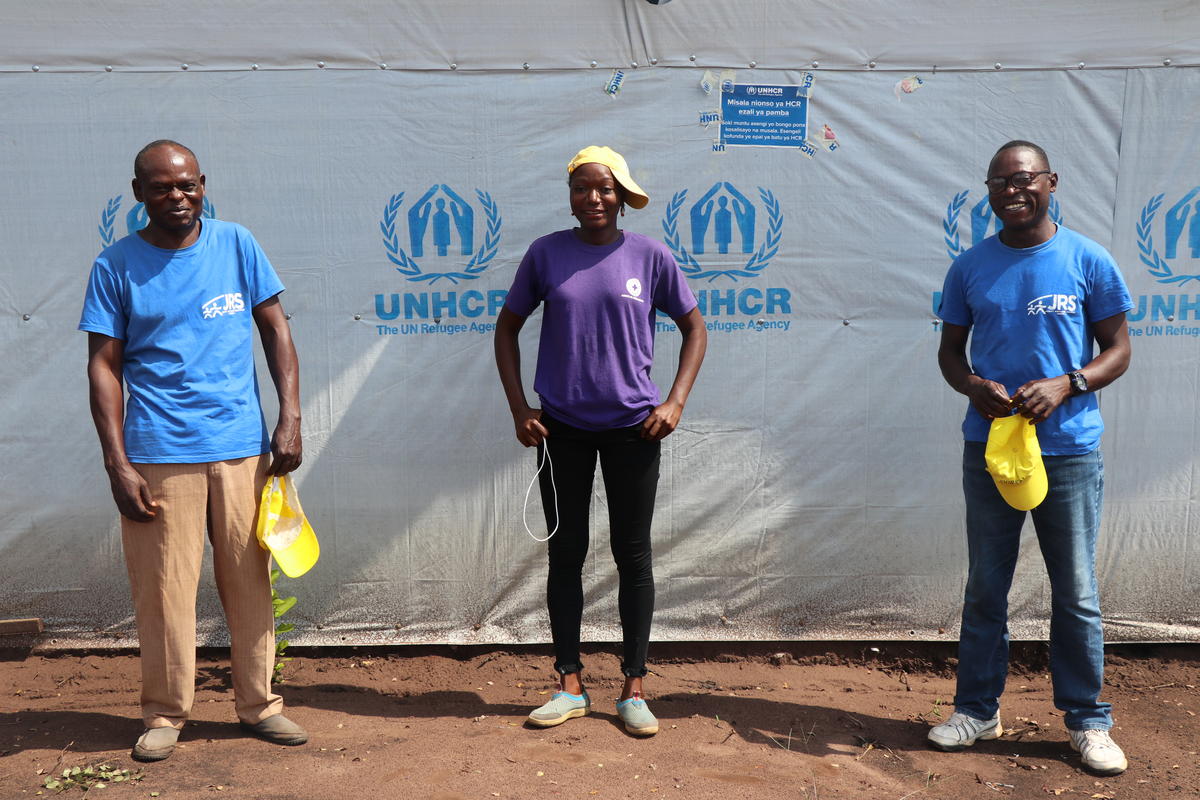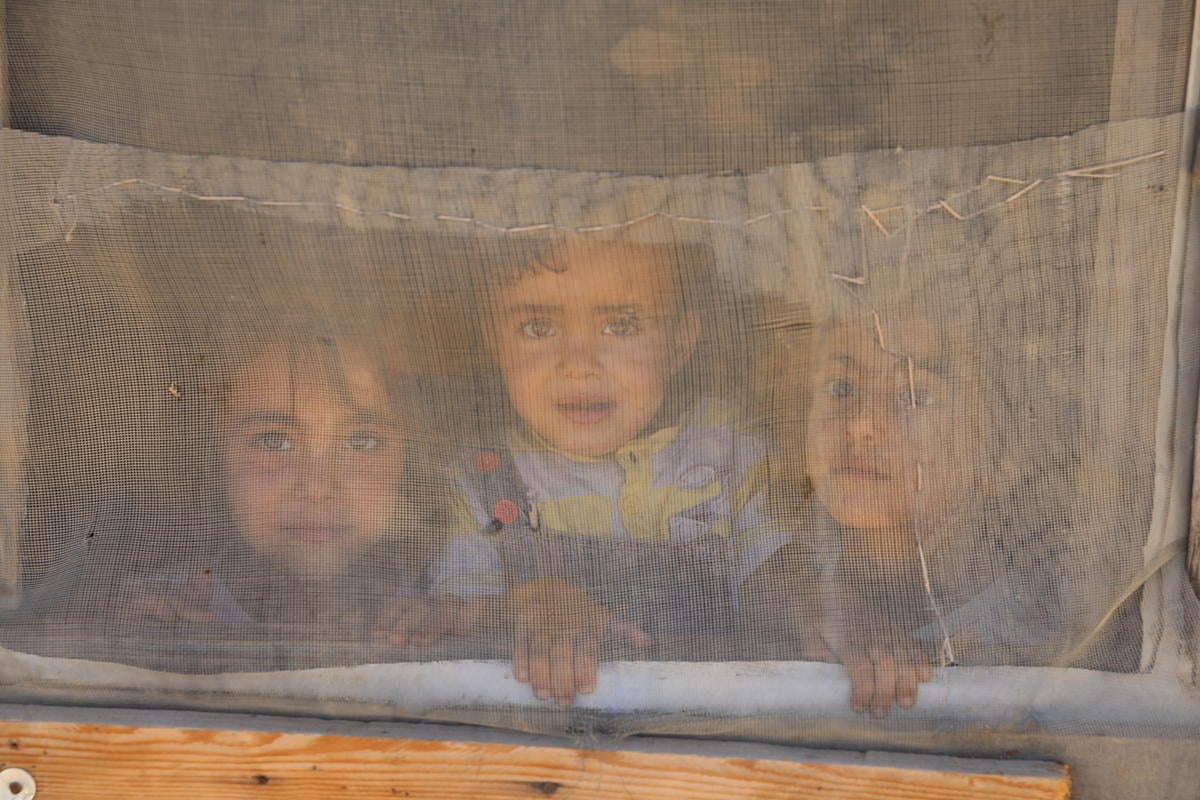Refugees start blog to share information on coronavirus

Refugees start blog to share information on coronavirus
Writing about what's going on around him has always been Roger Amaru’s passion. Even after he was forced to flee the brutal conflict in the Democratic Republic of the Congo’s Kasai region, his love for storytelling never died.
As the world grapples with the COVID-19 threat, Roger has become a busy man. Together with a team of 10 refugees, Roger, 43, has started a blog called Histoires de LovuaLink is external – French for ‘Stories from Lovua’– to share vital information about how to stay safe in the pandemic with fellow refugees in the Lovua settlement.
“We started this blog because we wanted the world to know about our daily lives as refugees in Angola,” he explains. “But we have a bigger responsibility now and that is to share very important information on the coronavirus.”
Roger is aware that without access to credible information in a timely and structured manner, panic and fear can ensue. He and his friends are determined to do their part in creating awareness in this community where some 6,000 refugees from the DRC live.
“We have a duty to educate and inform, and this is something I take very seriously,” adds Roger who was a journalist in the DRC.
“We have a duty to educate and inform, and this is something I take very seriously.”
So far, Angola has recorded 24 coronavirus cases, the first two reported in March.
“My biggest fear is that people would panic. I still worry what will happen to us refugees, who are very vulnerable in such situations,” he explains.
But he has decided to put his concerns aside and instead, focus on research and attending the information sessions organized by UNHCR, the UN Refugee Agency, and other agencies in the settlement.
UNHCR, together with the provincial government and partners, is working on a joint contingency plan for COVID-19 in Lunda Norte province, where Lóvua settlement is located, as part of the wider national response plan.
Through its health partner, Medicos del Mundo, UNHCR has trained community workers and carried out awareness sessions with refugees and local communities around the settlement. In addition, informational materials on how to safeguard oneself from the virus have been distributed around the settlement.
Roger’s team has been posting information on the blog, as shared by UNHCR and partners. They also highlight key guidelines and preventive measures such as social distancing, hand washing with soap and how to identify symptoms.
“More people are reading our blog because we are highlighting the measures in place to keep people safe,” explains Roger.
- See also: Across West Africa dual challenge of conflict and coronavirus threatens millions of people
With over 80 per cent of the world’s refugee population living in low to middle income countries, UNHCR is prioritizing measures to prevent potential outbreaks that would put extraordinary strain on already fragile local health services.
In the settlement, new water points and handwashing stations have been installed in key areas to allow refugees better access to water. The health clinic in the settlement has been expanded to include a separate screening process for severe respiratory cases. Any isolated cases can then be referred to hospitals in Dundo, the provincial capital.
The bloggers have limited resources and struggle to get reliable internet access to post their stories. They use Roger’s smartphone – the only one in the group – to take photos and to record interviews.
“We share one laptop with others. It is not the ideal way to work but it’s better than nothing,” he says, adding that they operate from a community centre in the settlement and when it’s not available, they work from his house.
“Life here can be tough, but we choose to focus on the positive things.”
Omotola Akindipe, a UNHCR reporting officer based in Dundo, says the agency plans to provide the group with better quality smartphones to “enhance their work and also improve communication between them and our protection colleagues.”
Roger believes that the support will go a long way, even as they hope to procure more equipment like laptops and a camera in the future.
For now, he is glad to have the opportunity to create awareness.
“Life here can be tough, but we choose to focus on the positive things – like the skills, talent and resilience of refugees,” he says.
When he is not working on the blog, he spends time at home with his wife and four children. He has trained his family on how to wash their hands with soap and to respect the social distancing guidelines.
“We frequently wash our hands and we know that by taking care of ourselves, we are taking care of others,” he adds.








